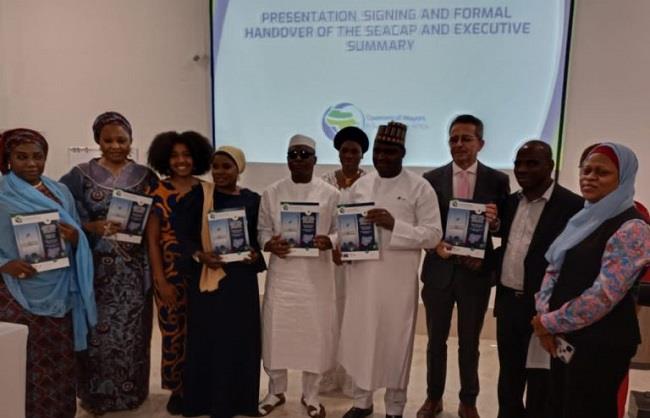Abuja Municipal Area Council (AMAC) in the Federal Capital Territory on Tuesday, July 5, 2022, launched its Sustainable Energy Access and Climate Action Plan (SEACAP) to address the issues of climate change and its associated impacts.

Mr Christopher Maikalangu, Chairman, AMAC, said it was important to build climate resilience, anticipate climate risks and hazards and ensure that low emissions that would foster development were encouraged.
“Climate Change is evident all around us. The changing climate, which is different from what we had 10 years to 20 years ago is affecting the way we live.
“Climate hazards such as floods, droughts, excessive rainfall, increasing temperatures, have increased in frequencies and intensities in many African cities and directly or indirectly impacted us all.
“According to the 2021 third assessment report of the World Meteorological Organisation and the United Nations Environment Programme, the WMO/UNEP Intergovernmental Panel on Climate Change, the frequency and intensity of drought seems to have already worsened in some parts of Africa.
“Due to this, people who earn their livelihood from agriculture are not able to cultivate their crops when there is a flood or need to find alternative means of irrigation when there is a drought.
“Another concern is the access to energy in Africa. Currently just over 40 per cent of the African population has access to electricity and about 17 per cent have access to clean cooking.
“Access to energy is crucial for ensuring quality health and education are available to the population, for creating economic and employment opportunities which also address inequality and for increasing access to clean water and creating better cities,” he said.
In his remarks, the immediate past chairman of AMAC, Mr Abdullahi Candido, said that it was important to carry everyone along, when addressing issues surrounding climate and energy needs.
Candido called on the new administration in the area council to provide political backing that is needed to carry out the different actions prioritised for each of the SEACAP projects.
“The poor are at a greater disadvantage, as they are often the ones living on flood plains because they cannot afford better homes outside flood-prone areas or cannot afford electricity or clean and modern cooking fuels.
“Indigenous people, women and children and our senior citizens should also not be left out and whatever development plans are being taken should try to cater as much as possible to these vulnerable groups,” he said.
Earlier, Mrs Abiodun Essiet, Covenant of Mayors Sub Saharan Africa (CoM SSA) Focal Person and a special adviser to the immediate past chairman of AMAC added that the action plan would last for eight years.
“This launch is the outcome of what we have been doing for the past one and half years and, with this, we have an eight-year plan as a local government to address the issue of climate change, energy access and other things.
“Part of the things we do is to empower the staff of AMAC to be able to implement this project; we have also trained some of the staff who will be implementing this project,” she said.
Ms Venessa Vovor, Programme Coordinator, CoM SSA, Nigeria, congratulated the area council for developing an action plan that would tackle the effects of climate change.
“As CoM SSA, we are very proud of the works and actions being taken by AMAC and we are congratulating them (officials) now on this work.
“We are supporting AMAC in the development of further urban infrastructure project.
“So the launch of this plan is the beginning of a journey where we will actively continue to support them with the development of actions and we will be providing them with the necessary technical assistance,” she said.
AMAC is a signatory to the Covenant of Mayors Sub Saharan Africa (CoM SSA) initiative.
It is a global alliance of municipal councils or local governments in Sub-Saharan Africa committed to taking voluntary action to combat climate change and providing sustainable energy access.
CoM SSA is an initiative funded by the European Union and co-implemented by GIZ.
By Ruth Oketunde
